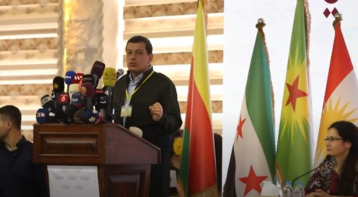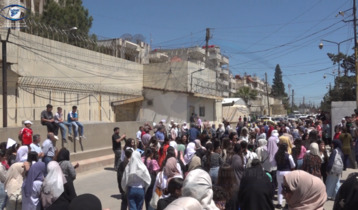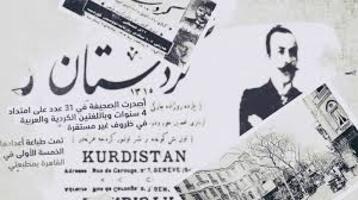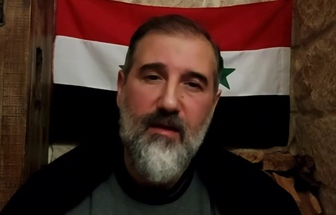-
Tough talks ahead as Afghan president objects to Taliban prisoner swap
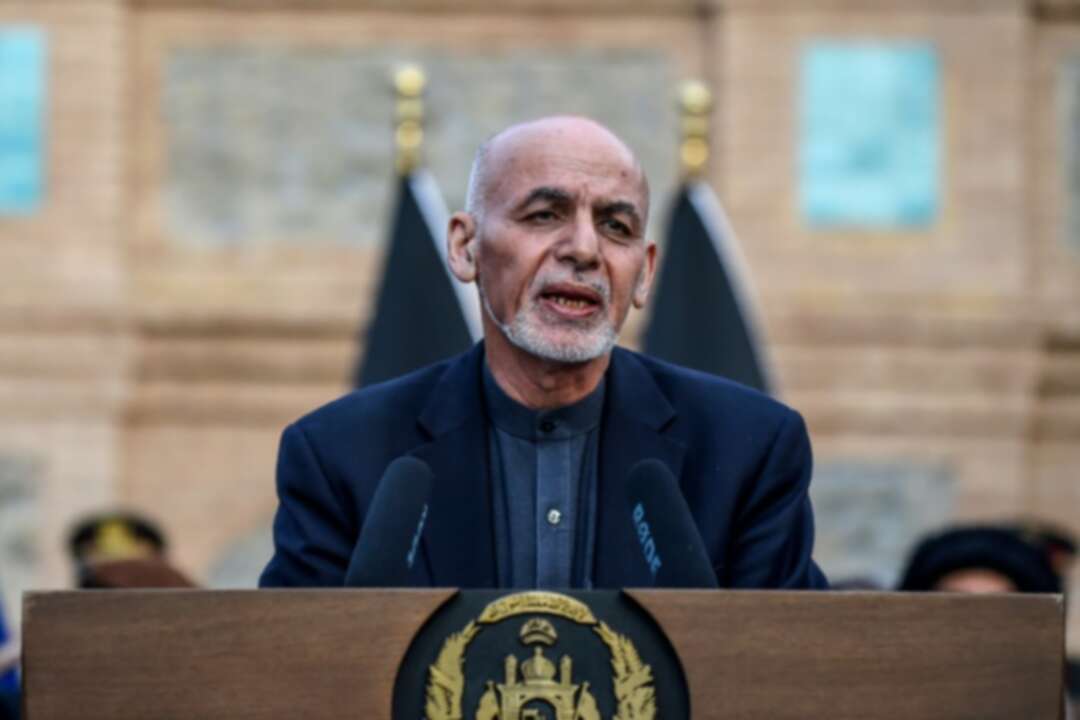
Afghanistan's weakened government protested Sunday against a key component of a deal between the US and the Taliban, setting the scene for fractious talks when Kabul and the insurgents meet to strike a separate agreement.
President Ashraf Ghani, who faces a political crisis following claims of fraud in his recent re-election, said he would not commit to a clause in the US-Taliban deal that calls for a massive prisoner exchange, something the militants have been demanding for years.
The swap is one part of the accord, fleshed out over more than a year of talks between the US and the Taliban, that was signed Saturday in Doha and lays out a 14-month withdrawal timetable for all foreign forces -- provided the militants fulfill various pledges and open talks with Kabul.
Ghani committed to continuing honoring a partial truce that has seen violence plummet in Afghanistan, but he pushed back against the requirement for the Taliban to release up to 1,000 prisoners and for the Afghan government to release around 5,000 insurgents captives by March 10, when talks are supposed to start.
The agreement says the "United States commits to completing this goal" of releasing the Taliban prisoners, but it is unclear how that would happen if Kabul is not on board.
"There is no commitment to releasing 5,000 prisoners," Ghani told a rare press conference, noting that any release is "not in the authority of the US, it is in the authority of the Afghan government".
"It could be included in the agenda of the intra-Afghan talks, but cannot be a prerequisite for talks," he said.
While supporters of Saturday's accord say it marks a critical first step toward peace, many Afghans fear it amounts to little more than a dressed-up US surrender that will ultimately see the Taliban return to power.
The extent to which that happens hinges on the coming "intra-Afghan" dialogue between the Taliban, the Ghani administration, and other Afghan political players.
But critics say Ghani has prioritized his re-election over making a deal with the Taliban and has struggled to finalize who will negotiate with the Islamic militants.
"The biggest challenge right now is the lack of preparedness of the Afghan government to negotiate, even though they knew for several years ... that this was going to happen and that these would be the parameters of the deal," Vanda Felbab-Brown, a senior fellow at the Brookings Institution, told AFP.
"It would be an extremely lucky situation if in 14 months there was a deal signed with the Taliban," she added, referring to the timeline under which all foreign forces are supposed to quit Afghanistan.
After Ghani's re-election was confirmed last month, his bitter rival Abdullah Abdullah immediately rejected the result and vowed to set up a rival administration. Washington has pointedly not congratulated Ghani.
Political deal-making is notoriously difficult in Afghanistan, a country still riven by tribal and ethnic rivalries, and where squabbling leaders and warlords struggle to find common ground on important issues.
The Taliban had, until now, refused to negotiate with Ghani's government -- which they considered a US puppet regime.
The deal says all foreign troops will leave if the Taliban stop jihadist groups such as Al-Qaeda and Islamic State using the country as a base to plot attacks against Washington and its allies.
But even that requirement is loosely-worded, with the deal stating only that the Taliban must send a "clear message" that those threatening the West "have no place in Afghanistan".
Laurel Miller, director of the Crisis Group's Asia Program, called the deal the "first concrete milestone in an Afghan peace process".
"Whether it sticks and whether it produces actual peace in Afghanistan remains to be seen," she said.
In the week before Saturday's deal signing, a partial truce dubbed a "reduction in violence" saw jubilant Afghans dancing in the street as hopes rose that the 18-year-old war might finally come to an end.
With the deal now signed, and despite lingering uncertainty about what it means for Afghanistan, Kabul residents said they were relieved to walk the streets without fear of Taliban attacks.
"I feel much more at peace today after the deal, more relaxed," one policeman told AFP on condition of anonymity.
In Jalalabad, capital of the eastern province of Nangarhar, more than a dozen Taliban fighters handed weapons over to the authorities in a ceremony.
"We came here to join the government peace and reconciliation process," Taliban fighter Atiqullah Jan told reporters.
"We are happy the security forces accepted us, I call on others to (join the process)."
source: AFP
Tags
You May Also Like
Popular Posts
Caricature
BENEFIT Sponsors BuildHer...
- April 23, 2025
BENEFIT, the Kingdom’s innovator and leading company in Fintech and electronic financial transactions service, has sponsored the BuildHer CityHack 2025 Hackathon, a two-day event spearheaded by the College of Engineering and Technology at the Royal University for Women (RUW).
Aimed at secondary school students, the event brought together a distinguished group of academic professionals and technology experts to mentor and inspire young participants.
More than 100 high school students from across the Kingdom of Bahrain took part in the hackathon, which featured an intensive programme of training workshops and hands-on sessions. These activities were tailored to enhance participants’ critical thinking, collaborative problem-solving, and team-building capabilities, while also encouraging the development of practical and sustainable solutions to contemporary challenges using modern technological tools.
BENEFIT’s Chief Executive Mr. Abdulwahed AlJanahi, commented: “Our support for this educational hackathon reflects our long-term strategic vision to nurture the talents of emerging national youth and empower the next generation of accomplished female leaders in technology. By fostering creativity and innovation, we aim to contribute meaningfully to Bahrain’s comprehensive development goals and align with the aspirations outlined in the Kingdom’s Vision 2030—an ambition in which BENEFIT plays a central role.”
Professor Riyadh Yousif Hamzah, President of the Royal University for Women, commented: “This initiative reflects our commitment to advancing women in STEM fields. We're cultivating a generation of creative, solution-driven female leaders who will drive national development. Our partnership with BENEFIT exemplifies the powerful synergy between academia and private sector in supporting educational innovation.”
Hanan Abdulla Hasan, Senior Manager, PR & Communication at BENEFIT, said: “We are honoured to collaborate with RUW in supporting this remarkable technology-focused event. It highlights our commitment to social responsibility, and our ongoing efforts to enhance the digital and innovation capabilities of young Bahraini women and foster their ability to harness technological tools in the service of a smarter, more sustainable future.”
For his part, Dr. Humam ElAgha, Acting Dean of the College of Engineering and Technology at the University, said: “BuildHer CityHack 2025 embodies our hands-on approach to education. By tackling real-world problems through creative thinking and sustainable solutions, we're preparing women to thrive in the knowledge economy – a cornerstone of the University's vision.”
opinion
Report
ads
Newsletter
Subscribe to our mailing list to get the new updates!

